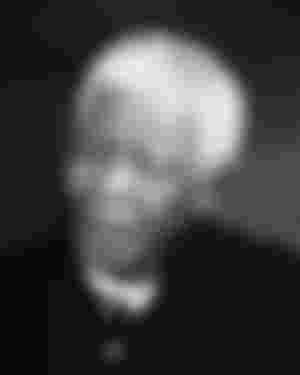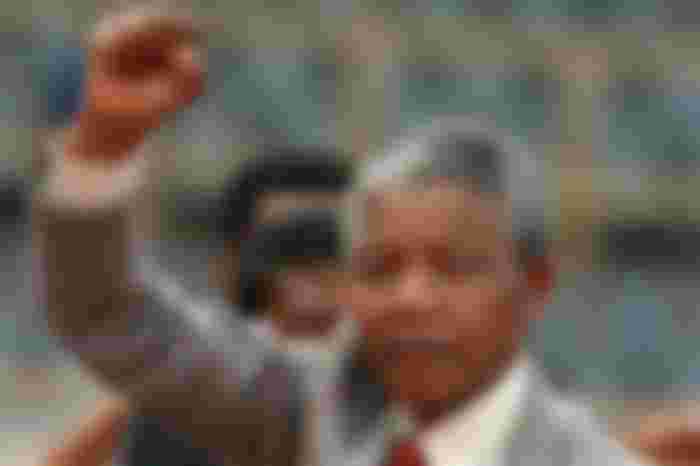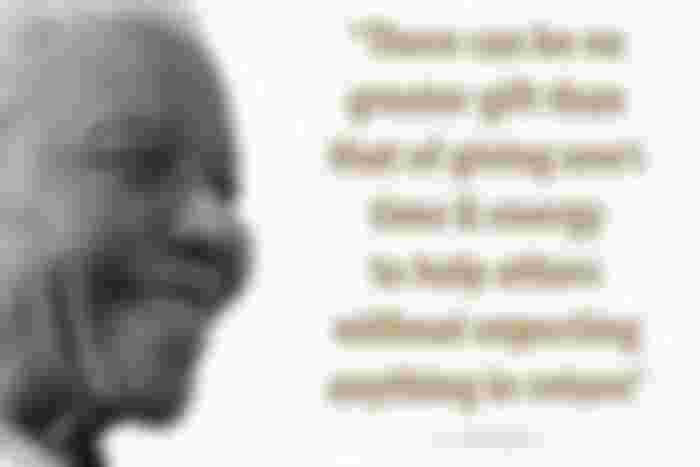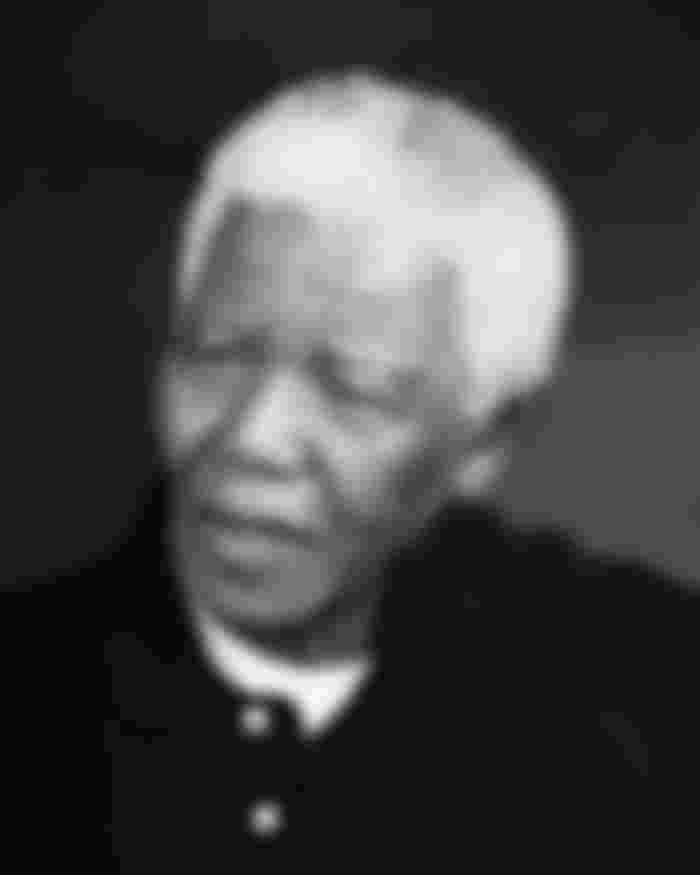
Nelson Mandela was the first black president of South Africa. He led a democratic government to end racism in South Africa. His role in world peace was undeniable, and he was awarded the Nobel Peace Prize in 1993.
Nelson Mandela's real name is Nelson Rolihlahla Mandela. He was born on 16 July 1918 in the village of Mvezo, Umtata, Cape, South Africa. She later became known as Madiba. His great-grandfather was the chief of the Tembu tribe. Nelson Mandela's father was Gadla Henry Mphakanyiswa Mandela. He was the regional advisor to the king. Nelson Mandela's mother's name was Nosekeni Fanny. She was Gadla's third wife. Nelson Mandela's father and mother were illiterate.

Mandela was admitted to the local Methodist school at the age of seven. On the first day of school, the teacher gave him an English name in Mdingane - Nelson. He received further education at Clarkbury Methodist High School. He then enrolled for a BA course at the University of Fort Hare, an elite school for blacks in Alice, Eastern Cape. In his first year at the university, he studied English, anthropology, political science, local administration, and Roman Dutch law. He then studied law at the University of Witwatersrand.
Mandela began his career as a lawyer in Johannesburg. There he became involved in anti-colonial activities and African nationalist politics. He joined the African National Congress in 1943 and played an active role in founding the Youth League in 1944. He took an active part in the anti-apartheid movement as the leader of an armed organization. Mandela joined the African National Congress (ANC) as national executive in March 1950 and was elected national president of the ANC's Youth League the same year.

Mandela's misconceptions about communism were shattered when he saw support for the Soviet Union's national liberation struggle, and he began reading works by Karl Marx, Vladimir Lenin, and Mao Zedong. As a result, he was inspired by the ideals of Marxist philosophy. Commenting on communism later, he said he was attracted to the idea of a classless society, which seemed to him to be equivalent to traditional African culture. In 1960, an anti-sarpabhilete blacks the right to protest against the law indiscriminately fired at the police. It killed 69 people. The ANC was banned at the time.
In 1971, Mandela took the path of armed movement. Because he believed that armed struggle was the only way out against the South African government's long-standing oppression and tyranny. He was arrested by the South African government in 1962. He was sentenced to life imprisonment for various crimes including sabotage. He was first arrested and imprisoned in Johannesburg. In 1964 he was sent to Robben Island. He was here for the first 18 years of his 27-year imprisonment. He called this prison on Robben Island 'Robben University'.
While in prison, his reputation continued to grow around the world. He is known around the world as the most important black leader in South Africa. As part of the rigorous imprisonment, Mandela and his fellow inmates were forced to work as laborers in a limestone mine in Robben Island prison. The condition of this prison was deplorable. At that time caste system was also practiced in prisons. Black prisoners were given the least amount of food. Political prisoners were kept separate and received relatively few opportunities. Mandela wrote in his autobiography that he was considered a D-Group prisoner, meaning he was placed on the list of the least privileged prisoners. He was given only one letter every 6 months and was allowed to meet only one visitor. The letter to Mandela was kept by prison censors for a long time. Before the letter was handed to Mandela, it was in many places readable with ink.
Mande while in prison
Sharing with @Telesfor sir &


